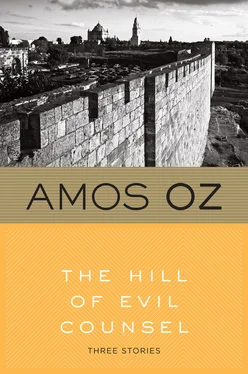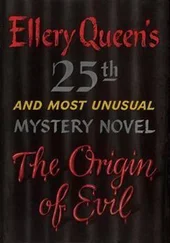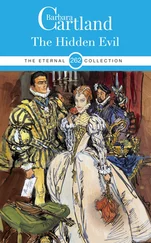Maybe this: Autumn outside, and everything is closing in. Something needs to be done. It needs to be done immediately, hopeless though it may be. What it is, I wish I knew. The present moment — is irrevocable. It has been, and it is no more.
I remember: A summer's day in Vienna. Early afternoon. A nip in the air. Wispy clouds suspended in a pale, almost gray sky. In the street there is a subtle blend of smells, fried meat, garbage, and flowering gardens. Perhaps also the perfume of passing women. The cafes are crowded. Through their windows can be seen gentlemen ia light suits, smoking, arguing, or doing business. Others are leafing through magazines or doing the crossword puzzle. Some are playing chess. I am on my habitual way home from the faculty library. My heart is empty. There is a slight temptation, not a real desire, to go and spend the evening with Charlotte or Margot on the first floor of the Weary Heart. As I pass the bridge, I pause for a moment. There, just by the bridge, stand a pair of Negro beggars. One is beating a drum while the other is wailing a kind of tune. There is a hat on the sidewalk with a few pennies in it. Neither of them is young. Neither of them is old, either. It is as if they are outside the European age scale, subject to another biological clock.
I stop and linger, watching them from a short distance away. Not long ago I took a course in anthropology, yet I believe these are the first Negroes I have ever seen. Outside the circus, of course. Yes, they are woolly-haired. Coffee-skinned, not cocoa-colored. A slight shudder ripples through me. I brush aside a fleeting mental image of the shape of their sexual organs. The taller of the two, the one who is wailing or singing, has a pierced nose but no nose ring. The other one's nose is so amazingly long and flat that it revives the suppressed image of their sexual organs. I can neither leave nor take my eyes off them. I am chained to the spot, as it were, by fear, fascination, and disgust. They are standing with their backs to the bridge and the water. One is wearing sandals held together with bits of string, the other a pair of large, worn-out shoes and no socks. I am suddenly overcome with shame, like the time when, as a child, I was caught gaping at the low neckline of my Aunt Crete's dress. Hurriedly I toss a coin into the hat.
Something is urging me, after all, to head for the Weary Heart, to spend the evening with Charlotte or Margot, or even both together for a change. But my feet are rooted to the ground. I look at my watch, pretending to be waiting for someone. And I wait. In any case, without prior arrangement by telephone there can be no Margot or Charlotte.
Just then a group of youngsters in the uniform of a national youth movement draws to a halt beside the black beggars. I am fixed to the spot. They are quiet-looking boys, handsome, thirsty for knowledge, all with close-cropped hair, and from their bronzed skin one senses that their prolonged hikes in the mountains and forests have instilled in them an element of military toughness, although without undermining their fundamental good manners. Then their leader steps forward. He is a short, taut, athletic man of middle years, with ruthlessly cropped gray hair and thin, molded lips. There is something about his gait or the set of his shoulders that suggests that he would be equally at home on a river, alone in the mountains, or in a spacious mansion. The sort of man that my father longs for his only son to resemble, at least in outward appearance. The leader is wearing the same clean, neatly pressed uniform, distinguished only by his lanyard and by the colors of his badges and epaulets. He starts to explain something to the youths. His voice is clipped. Each short sentence ends in a bark. As he speaks, he waves a finger in the air; he has no compunction about pointing it an inch or two from the head of the nearer of the two Negroes. He indicates the outline of the skull. He emphasizes and demonstrates. I edge closer, to catch what he is saying. He is expatiating in a Bavarian accent on the subject of racial difference. His short lecture, as far as I can follow it, is a blend of anthropology, history, and ideology. The rhythm: staccato.
Some of his charges produce identical notebooks and pencils from the pockets of their brown shirts and take eager notes. The two Negroes, meanwhile, grin relaxedly from ear to ear. They roll their eyes ingratiatingly. They are brimming with good will, perhaps stupidity, innocent gaiety, respect, and gratitude. I must admit that at this moment they look to me like a pair of stray dogs about to be taken in by a new master. And all the while the leader is employing such words as evolution, selection, degeneration. From time to time he snaps his fingers loudly, and the two Negroes respond as one man with high-pitched laughs and flashing, milk-white teeth.
The leader holds out his thumb and forefinger, measures their foreheads without touching them, then measures his own and says, " Also. "
The short lecture concludes with the word " Zivilisation. "
The boys put their pencils and notebooks back in their pockets. The spell is broken. Silently they go on their way. To me they look very worried as they march briskly away downstream, toward the city center and the museums. For an instant they resemble a military patrol, a forward-reconnaissance party that has stumbled on an outlying detachment of enemy troops, disengaged and retreated to seek reinforcements.
The spell was broken. I, too, resumed my homeward journey. On the way, ruminating, I was almost inclined to agree: Europe is indeed in danger. The jungle races are indeed on the threshold. Our music, our laws, our sophisticated system of commerce, our subtle irony, our sensitivity to double meanings and ambiguities — all are in mortal peril. The jungle races are on the threshold. And surely history teaches us that the Mongol hordes have already swept once out of the depths of Asia and reached the very banks of the Danube and the gates of Vienna.
At home, Lisel was silently serving dinner. Father was also silent. His face was overcast. Business was going from bad to worse. There was an ugly atmosphere in the city. Things would never be the same again. On the radio, a minister was vowing to crush Communism, cosmopolitanism, and other destructive elements. The government had displayed great forbearance toward the parasites, the minister declared, and had been repaid only with ingratitude. Father turned it off. Still he said nothing. Perhaps he privately blamed the Eastern Jews who were pouring in in droves, bringing us nothing but trouble. I, too, ate my dinner in silence, and retired to my room. Margot, her shoulders, her neck, was still at the edge of my thoughts. And what could I tell Father? He was always convinced that his only son was up to his neck in student flirtations and had no idea what was going on in the city and the world.
At midnight, I went downstairs to the kitchen for a glass of water and found him sitting there alone, in his dressing gown, silently smoking, with his eyes closed.
"Are you in pain again, Father?"
He opened an eye.
"What are you blathering about, Emanuel?"
And after a short silence:
"I got some Zionist prospectuses in the mail today. Brochures from Palestine. With pictures."
I shrugged, excused myself, said good night, and returned to my room.
Precisely a week later, the letter arrived.
It was anonymous. On the envelope Father's name was typed, in correct style, with the address of his factory. He opened it in the presence of his secretary, Inge, and suddenly his world went dark. Inside the envelope there was a small sheet of good-quality notepaper, with a watermark and gold-embossed edges, but with no heading, date, or signature. There was just a single word, inscribed in the very middle of the page, in a fine, rounded hand: Jude. And an exclamation point.
Читать дальше











